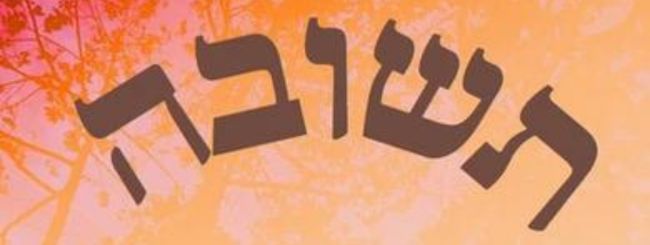Develop yourself to the best of your ability

The month of Elul is for both Jews and Noahides a month of reflection and return to G-d. All go under His shepherd’s rod on Rosh HaShana to see how we are. All the peoples of the world are judged according to their deeds on the day of Rosh HaShanah
Mishnah Rosh HaShanah 1:2 “At four junctures, the world is judged: on Passover for grain, on Shavuot for fruits, on Rosh Hashanah all pass before him like sheep of the flock, as it is written, “He form their hearts as one, he understands all of their deeds.” (Psalms 33). On Sukkot, the world is judged for water.”
The tzadik R. Meshulam Zusya of Anipoli said that he could not attain the heights of such a teshuva; he would therefore break down teshuva to its components, for each letter of the word teshuva is the initial of a verse:
T: Tamim – “Be sincere with the Eternal your G‑d.”
תָּמִ֣ים תִּֽהְיֶ֔ה עִ֖ם יְהֹוָ֥ה אֱלֹהֶֽיךָ
Deutronomium 18:13
We Noahides must learn to walk with Him with our whole heart. That means that we do not seek to explore our future, but that we accept what He will bring us.
Sh: Shiviti – “I have set G‑d before me always.”
שִׁוִּ֬יתִי יְהֹוָ֣ה לְנֶגְדִּ֣י תָמִ֑יד כִּ֥י מִ֜ימִינִ֗י בַּל־אֶמּֽוֹט
Psalms 16:8
We must learn and study the Seven Noahide Laws in the Torah. If we do this, He will help us in our ways so that we will not stumble and make mistakes.
U: V’ahavta – “Love your fellow as yourself.”
לֹֽא־תִקֹּ֤ם וְלֹֽא־תִטֹּר֙ אֶת־בְּנֵ֣י עַמֶּ֔ךָ וְאָֽהַבְתָּ֥ לְרֵעֲךָ֖ כָּמ֑וֹךָ אֲנִ֖י יי
Leviticus 19:18
This is the most fundamental principle of the Torah.
Even more important than the love of G-d.
They asked Rabbi Schneur Zalman, the first rebbe of Chabad:
“Which is greater: love for G-d,
or love for your fellow man?”
“Love for your fellow man,” he replied.
“For then you love what your beloved loves.”
V: B’chol – “In all your ways, know Him.”
בְּכָל־דְּרָכֶ֥יךָ דָעֵ֑הוּ וְ֜ה֗וּא יְיַשֵּׁ֥ר אֹֽרְחֹתֶֽיךָ
Proverbs 3:6
In everything we do, whether it is at work, during free moments with friends or family, while practising our hobby. We must always keep G-d in mind and learn to link everything we do to His will.
H: Hatznei’a – “Walk discreetly with your G‑d.”
הִגִּ֥יד לְךָ֛ אָדָ֖ם מַה־טּ֑וֹב וּמָה־יְהֹוָ֞ה דּוֹרֵ֣שׁ מִמְּךָ֗ כִּ֣י אִם־עֲשׂ֚וֹת מִשְׁפָּט֙ וְאַ֣הֲבַת חֶ֔סֶד וְהַצְנֵ֥עַ לֶ֖כֶת עִם־אֱ”לֹהֶֽיךָ
Micha 6:8
We can link “discreetly” to modesty. We behave in a modest way: in our speech, in our actions and in our clothes. And we should also be modest in our thinking and remember that G-d forgives us and it is up to us to forgive our neighbour in the same way.
Rashi points out the following:
“The standard of flesh and blood is not like the standard of the Holy One, blessed be He. The standard of flesh and blood is: If one man embarrasses his fellow and comes to placate him, the fellow says to him, “I will not accept your apology until so and so and so and so, before whom you disgraced me, come.” But the Holy One, blessed be He, desires only that the man’s return to Him be between the two of them.” [from Pesikta d’Rav Kahana 163b]
Our tseshuva can only be completed when we forgive our fellow man.
I refer you to the following series of lessons on this topic:

By Angelique Sijbolts
Sources: Rashi :Tamim, Shiviti V‘ahavata Hatznei’a Which Is Greater? Ebn Ezra: B’colHayom Yom: Tishrei 3, Shabbat Teshuva
@ Copyright, all rights reserved. If you enjoyed this article, we encourage you to distribute it further.
